The Class of 1900 Yearbook
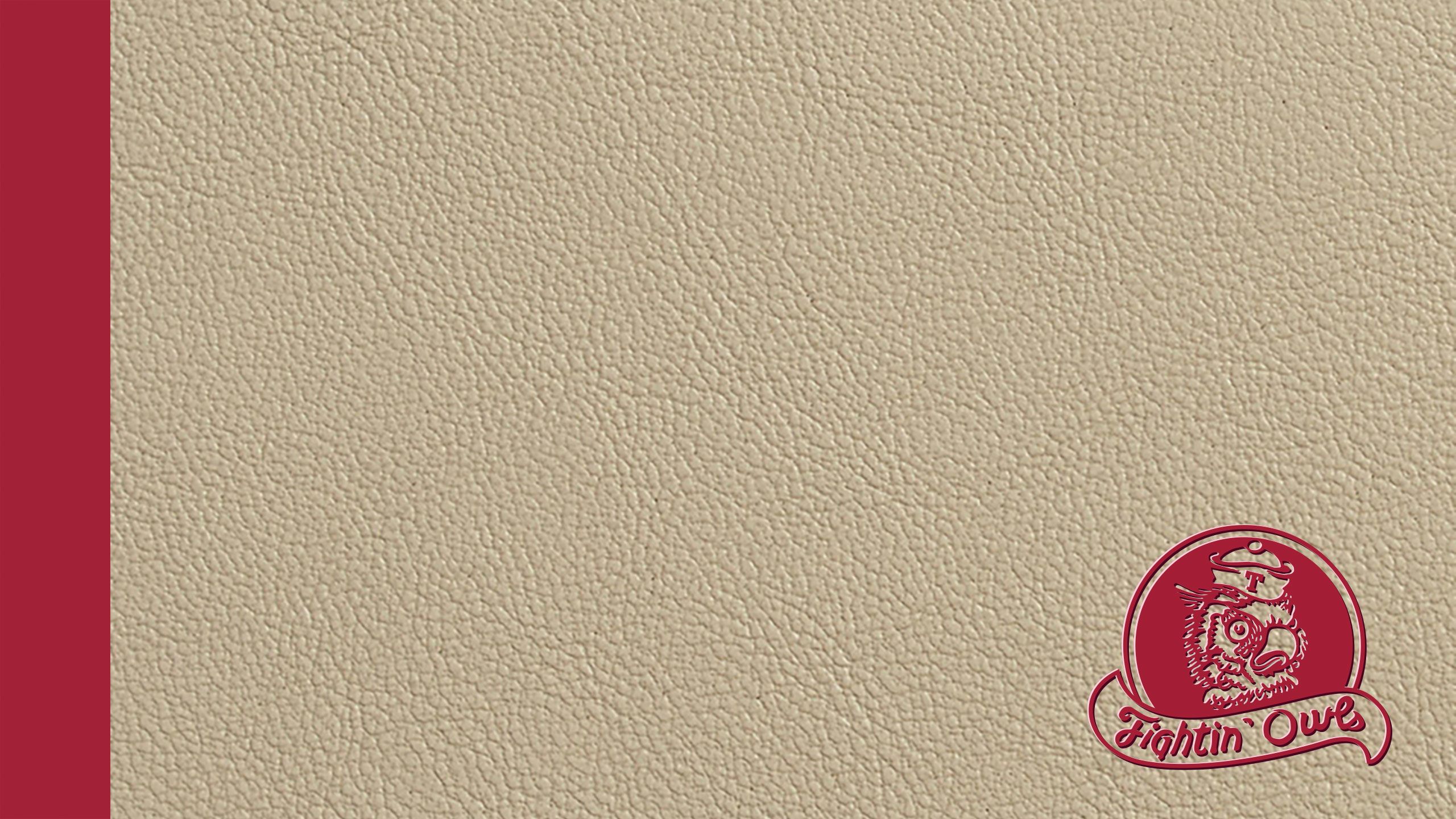
The Record of the Class of 1900 was the first yearbook in Temple’s history history.
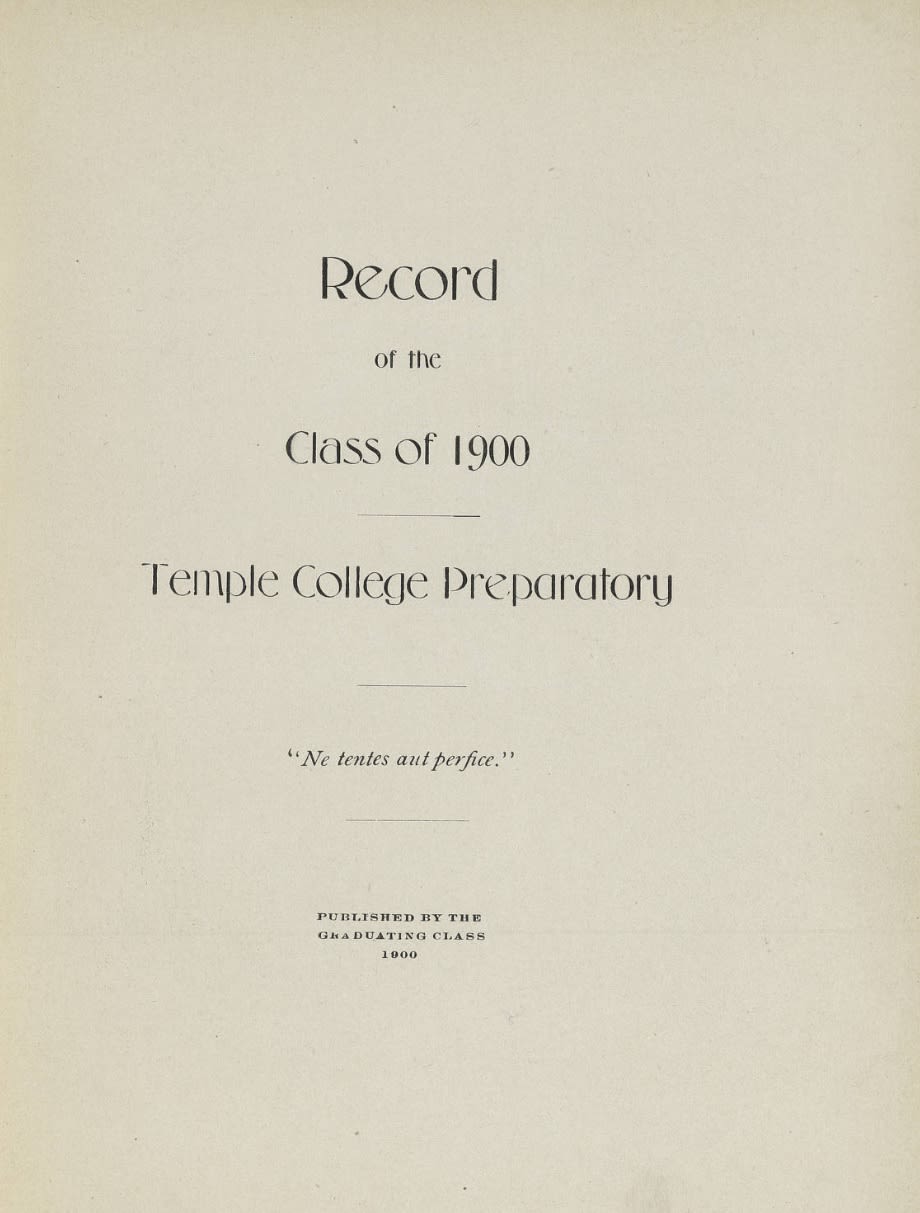
The students of “naughty naught” poked fun at their professors, their classes and most of all, themselves.
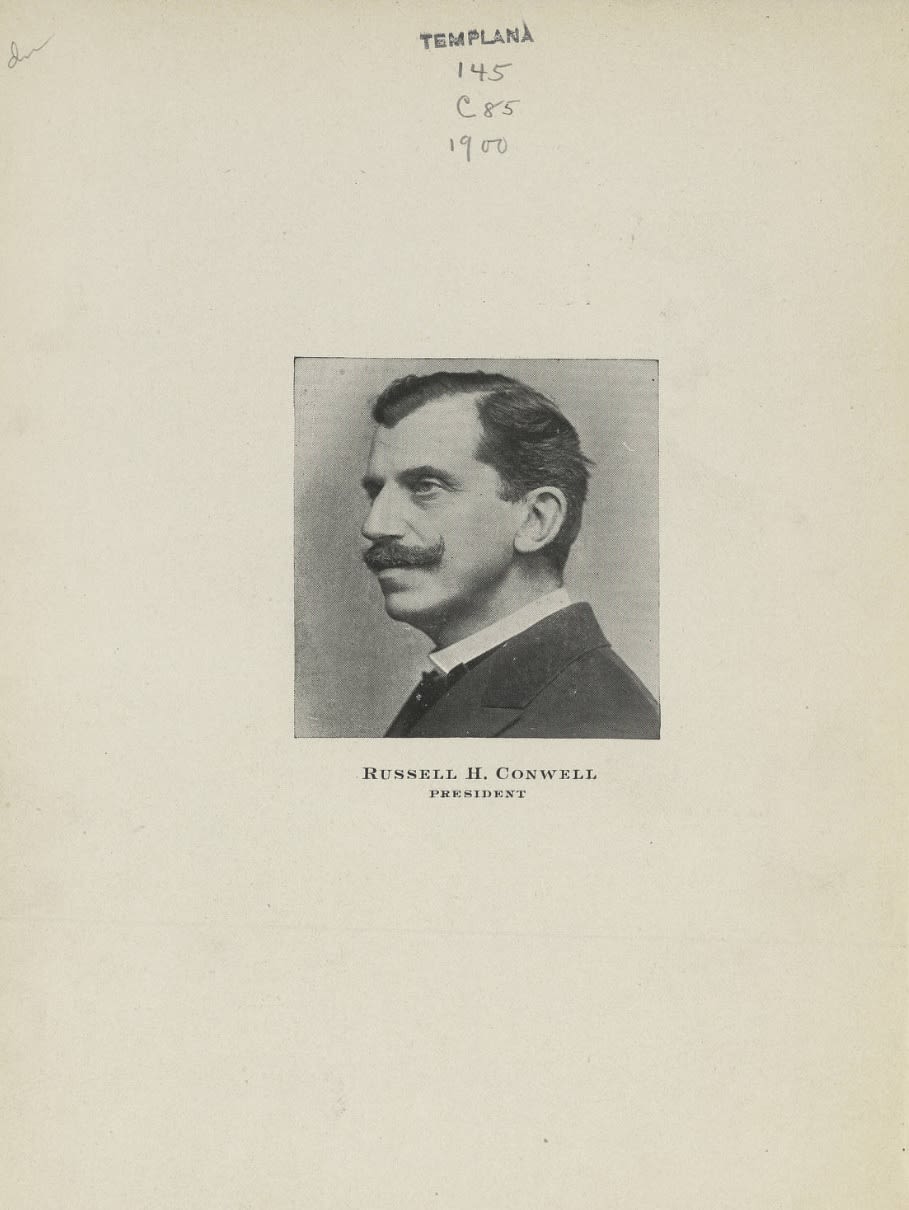
We feel that class day is a day of personalities—a day when all our peculiarities and idiosyncrasies are to be exhibited without the least concealment.
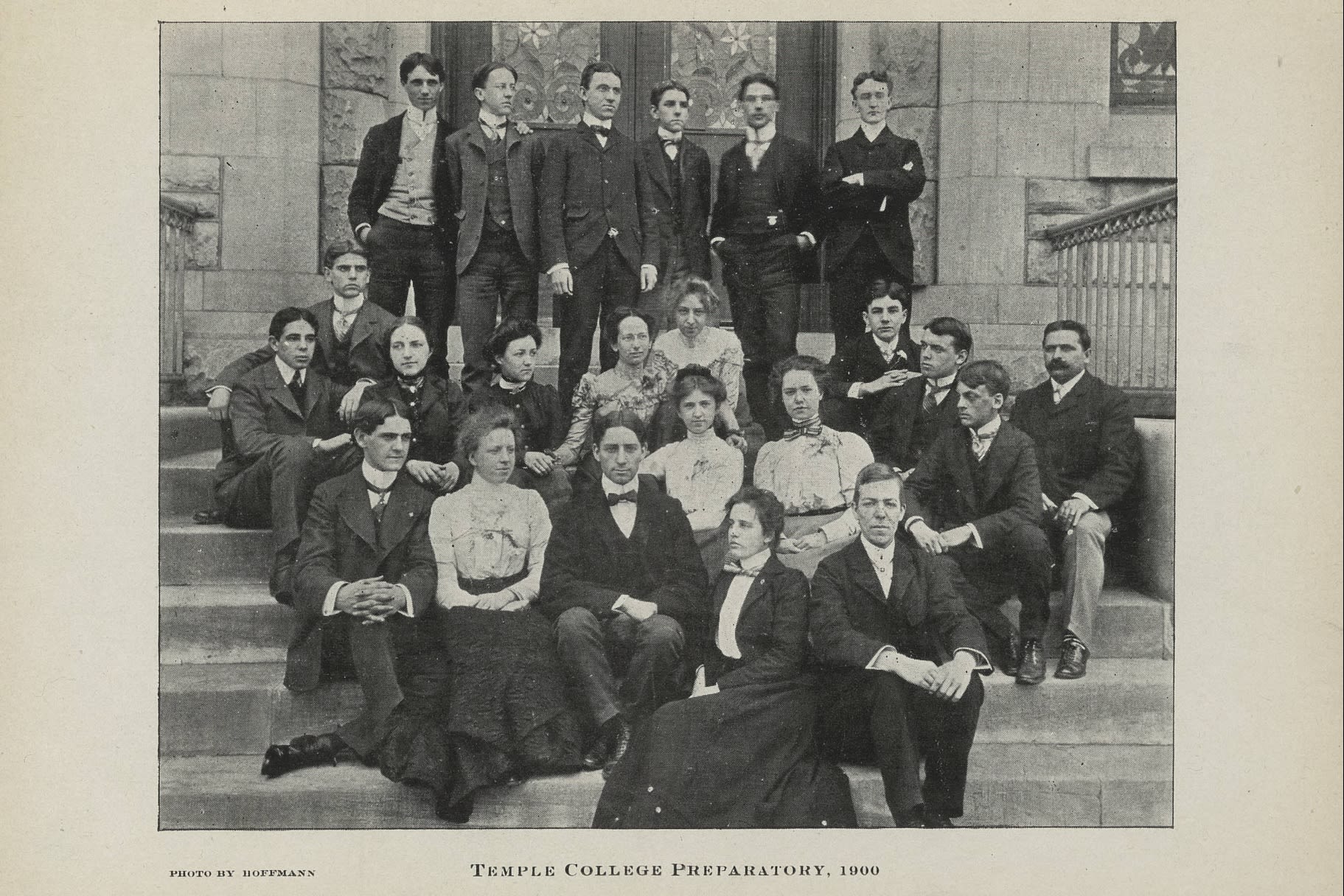
The yearbook features poetry, a class song, a tongue-in-cheek prophecy about the students’ lives after graduation and a history of their time at Temple.
History of C.P. 1900
Before detailing the history of the class of 1900 I will acquaint the audience with the probably well-known fact that 1900 is by far the most remarkable class that ever entered this institution, and, as far as we can judge, will be the most remarkable ever graduated from it. In scholarship, in athletics and in society the class of “naughty naught” stands in an unattainable eminence only to be emulated and striven for by the under classes. Even in September, ʼ97, when the now illustrious class entered on its career of greatness in the humble position of C.P. I, it was evident to persons of discernment, notably several members of the faculty, that the assembled students were a more promising assemblage than the usual freshmen herd.
In the first year of our work, we made the acquaintance of the faculty, who from that time have had the privilege of instructing us, and aimed for the social organization which always marked 1900. The year passed. We had become acquainted with each other and the professors. We observed their little peculiarities for our future benefit, since those little peculiarities often gave us the chance of making high marks work a minimum expenditure of mental energy, an accomplishment that we recommend to C.P.I and C.P.II. We coupled this art with an appearance of diligent study and concentrated attention, which duly deceived the professors into the belief that we were a hard-working class.
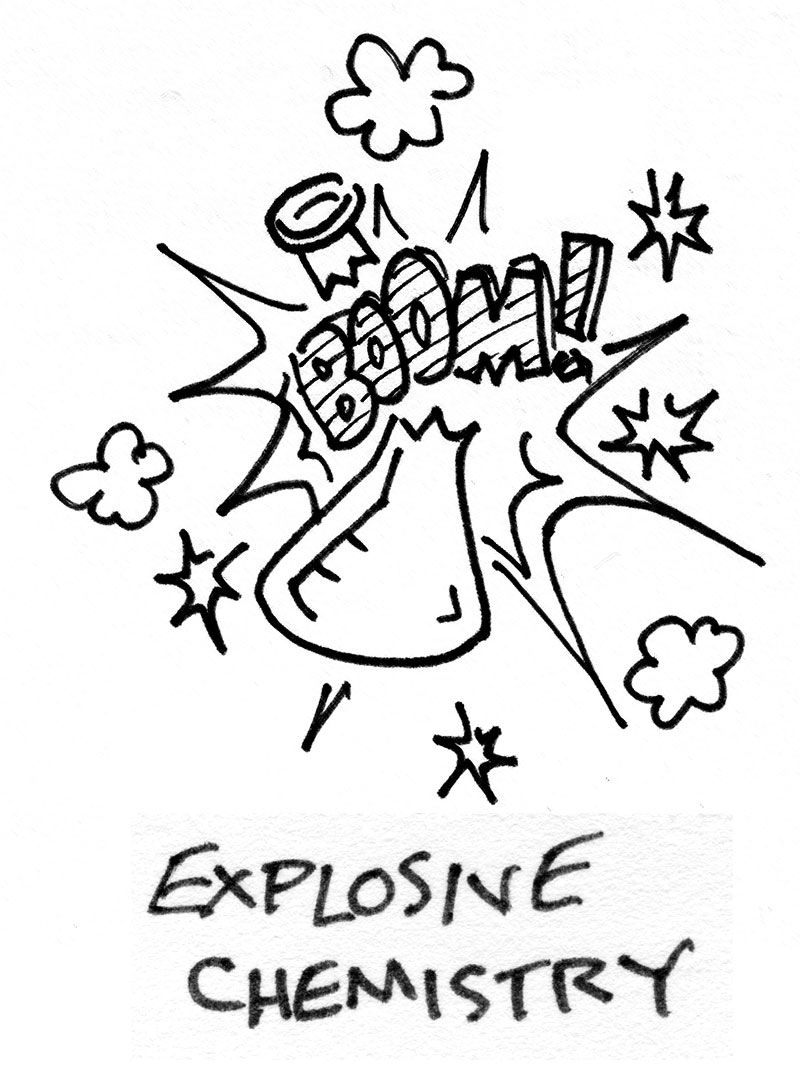
September, ʼ98, found the class again assembled, with additions good and bad. Which were which time must show. We had reached the dignity of C.P.II. We had attained the eminence of Caesar and the chemical laboratory. Caesar was safely passed on horseback, but the laboratory was more than a nine days’ wonder. It’s nature was twofold, the drugstore and the powder manufactory. We were in alternate worries of being suffocated with chlorine or blown up with compounds of uncanny manufacture. Miss Harton developed a mania for explosions, and was forever trying them on her own account. They generally culminated in a flash, roar and a shrill scream for the professor. She kept Professor Foster busy.
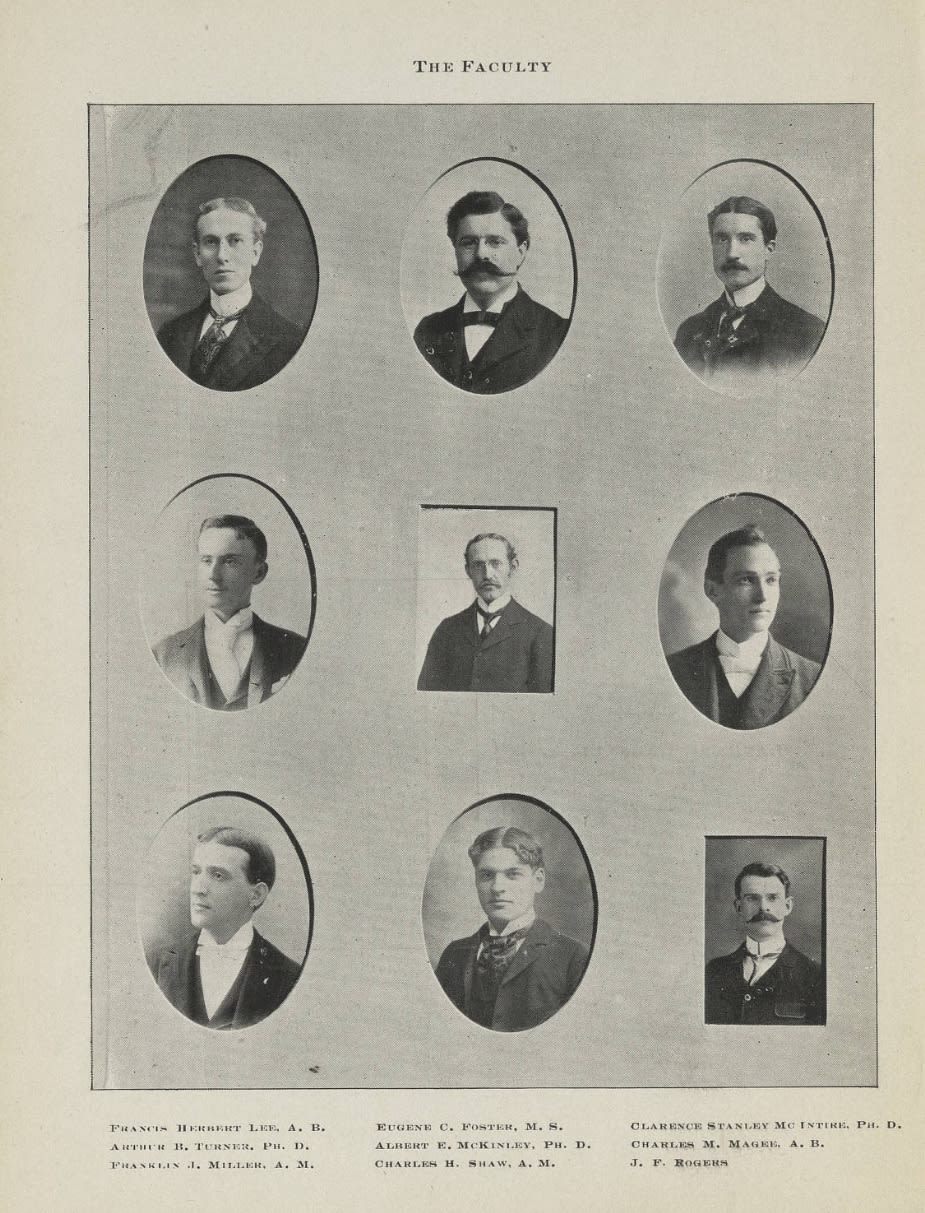
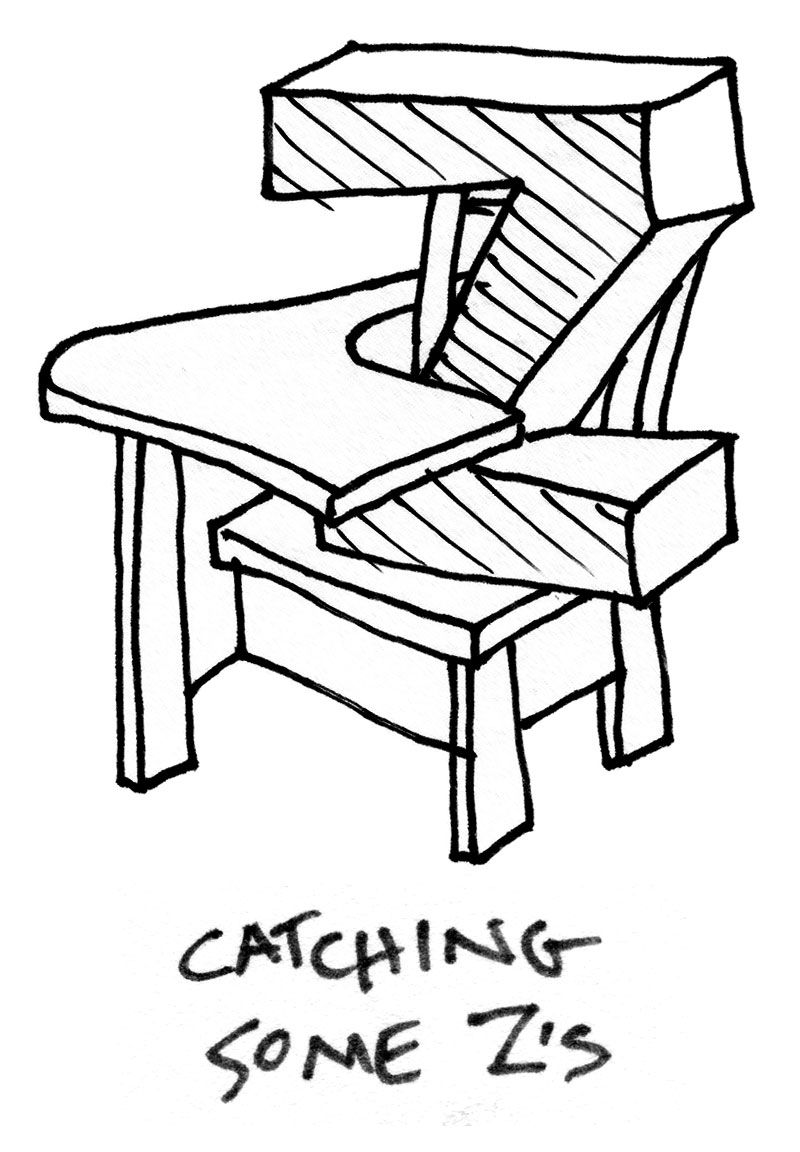
An astronomy class was formed, and unfortunately for its members, its work began in February, so its members squinted and froze alternately on the roof of Professor Turner’s home, on Eighteenth street. Our treasurer, Mr. Stone, was prominent in this work and delighted “fessor” by his apparent thirst for astronomical information.
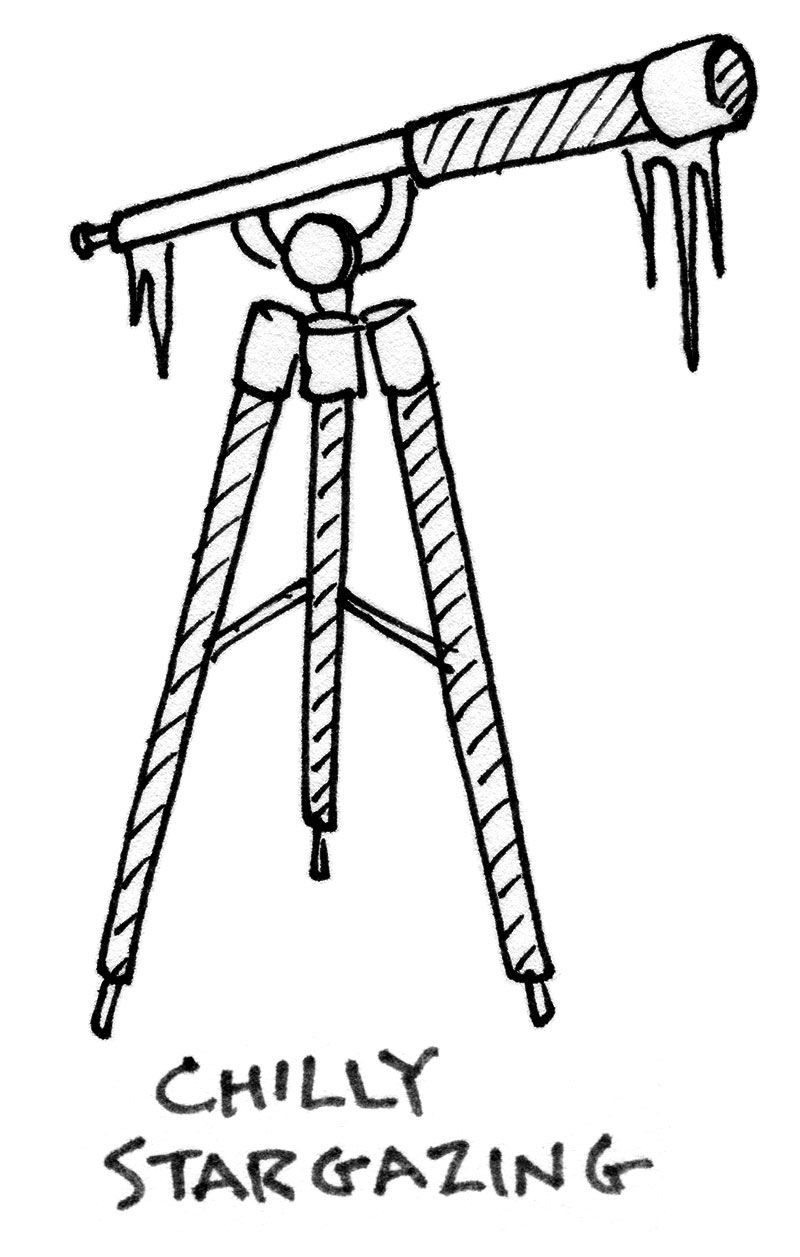
When we reassembled, in September ʼ99, we came prepared to work, if necessary, but to enjoy ourselves more.
That we were the largest class ever taking this course was admitted even by the faculty, because it was undeniable, and that we were the most important and privileged class we undertook to show them.
After chapel we met in Dr. McIntyre’s English, a class prominent for many reasons. Principally because here the entire class of 1900 assembled, a privilege given to no other class.
During the latter part of the year Wolf, the dear child of the class, became so forgetful of his surroundings, and for some reason was so reminded of the nursery that he fell sound asleep, so soundly that it required the efforts of both class and teacher to rouse him. Mr. Cheesman, of Jersey, also was induced to drowse, probably by the comfort of the chair, and was oftentimes saved from failure by the energetic efforts of his neighbors.
We are certain that the Doctor did not know how much chess was played in his class, since most all the tournament games were played there without interference, but as this is a day of specialization, we cannot expect “fessor” to become an amateur detective, as he is already the golfiac, theologian, literature professor and lecturer.
Latin was a study in which some of our classmates delighted, and which others took for other reasons than pleasure. Professor Lee was our teacher, and none was more fitted than he for the place. He reminded us of an ancient, stoic philosopher; his very appearance seemed in keeping with the languages he taught. Tall and spare of figure, lean of face, with an expression of imperturbable gravity, it was difficult indeed to disturb the calm serenity of those stoical features, yet one incident occurred which proved that it was not impossible. Stone, whose brilliancy as a translator in any language from Chinese to Hog Latin is well known, was telling in his usual animated way of the mistake of Androgenous at the fall of Troy, but when it appeared that Androgenous was appalled at the same time that he stopped his voice with his foot, it was too much even for our stern professor. It was then that his face lost its accustomed dignity, that his jaw dropped, his lips parted and that he broke into a hearty peal of laughter. How Androgenous accomplished this remarkable feat Stone is still endeavoring to explain to us.
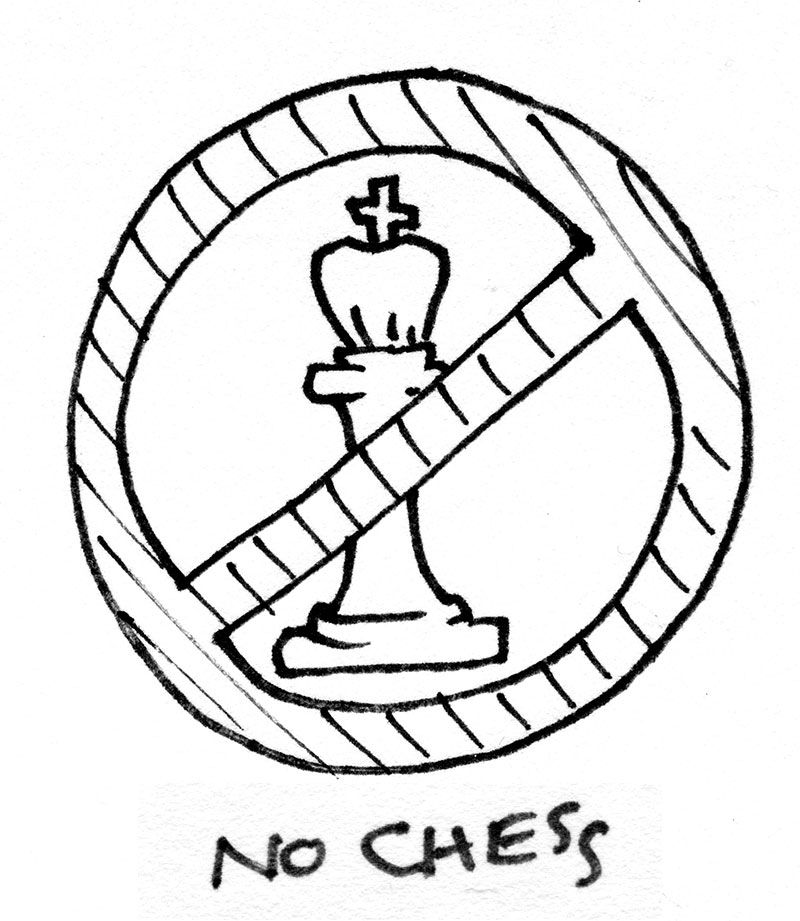
The gentleman who presides over the domain of history and political economy is a short, blusking “fessor,” with a decided propensity for getting off little jokes which sometimes attained a certain respectability. He was entirely too gentle to stop any offense under chess playing. That alone he decidedly demurred to do. Miss Miller could call him “dear child,” Miss Harton play with his hat or steal photographs from his desk, but when poor Pierce passed a chessboard along the row the professor’s mild blue eye immediately spied it, and commanded, “Put that board away!”
Such is the history of the wonderfully-gifted class of 1900. As I have said, there has been none equal to us, nor can we see the possibility of an equal, so, with thoughts of pride and satisfaction, we look back with a feeling of pleasurable regret upon the scene of our trials and triumphs, Temple College.
J. Harper Williams
Class Historian
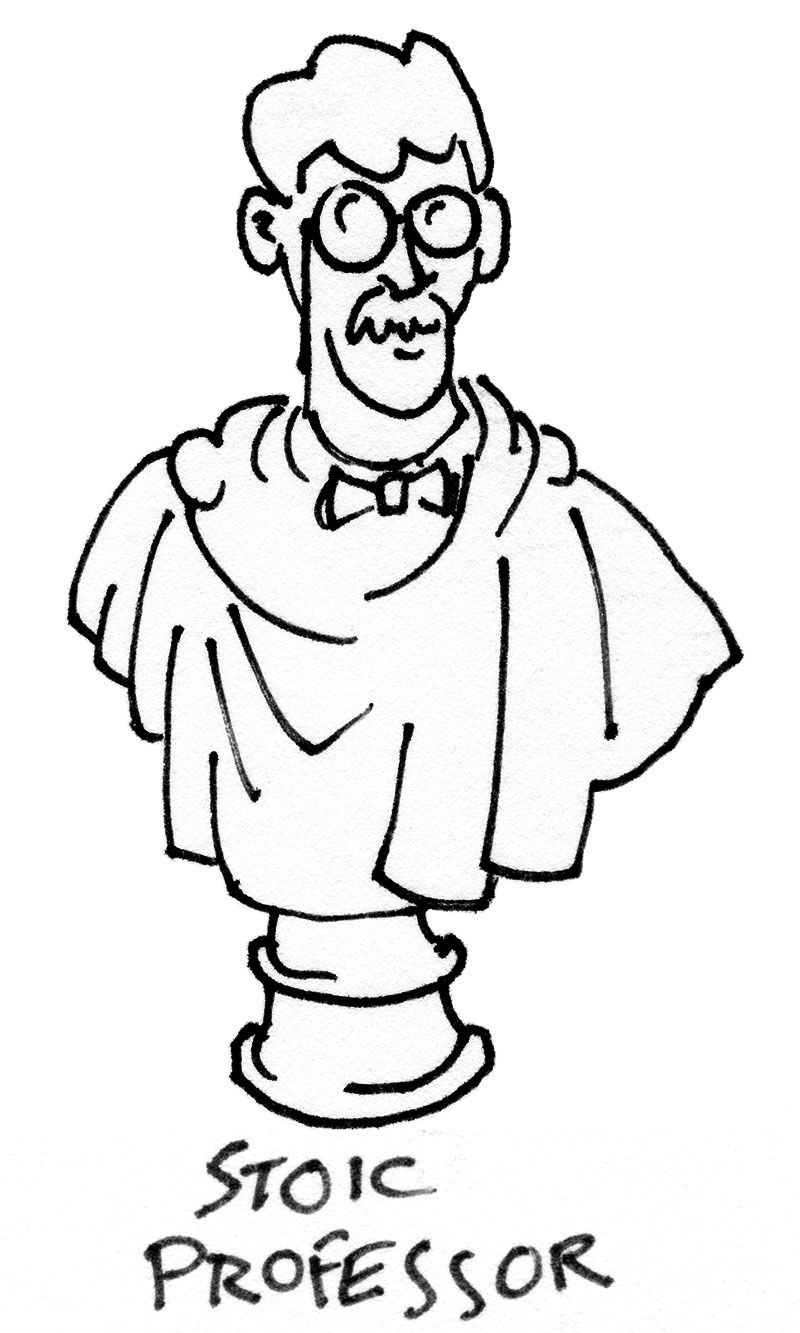
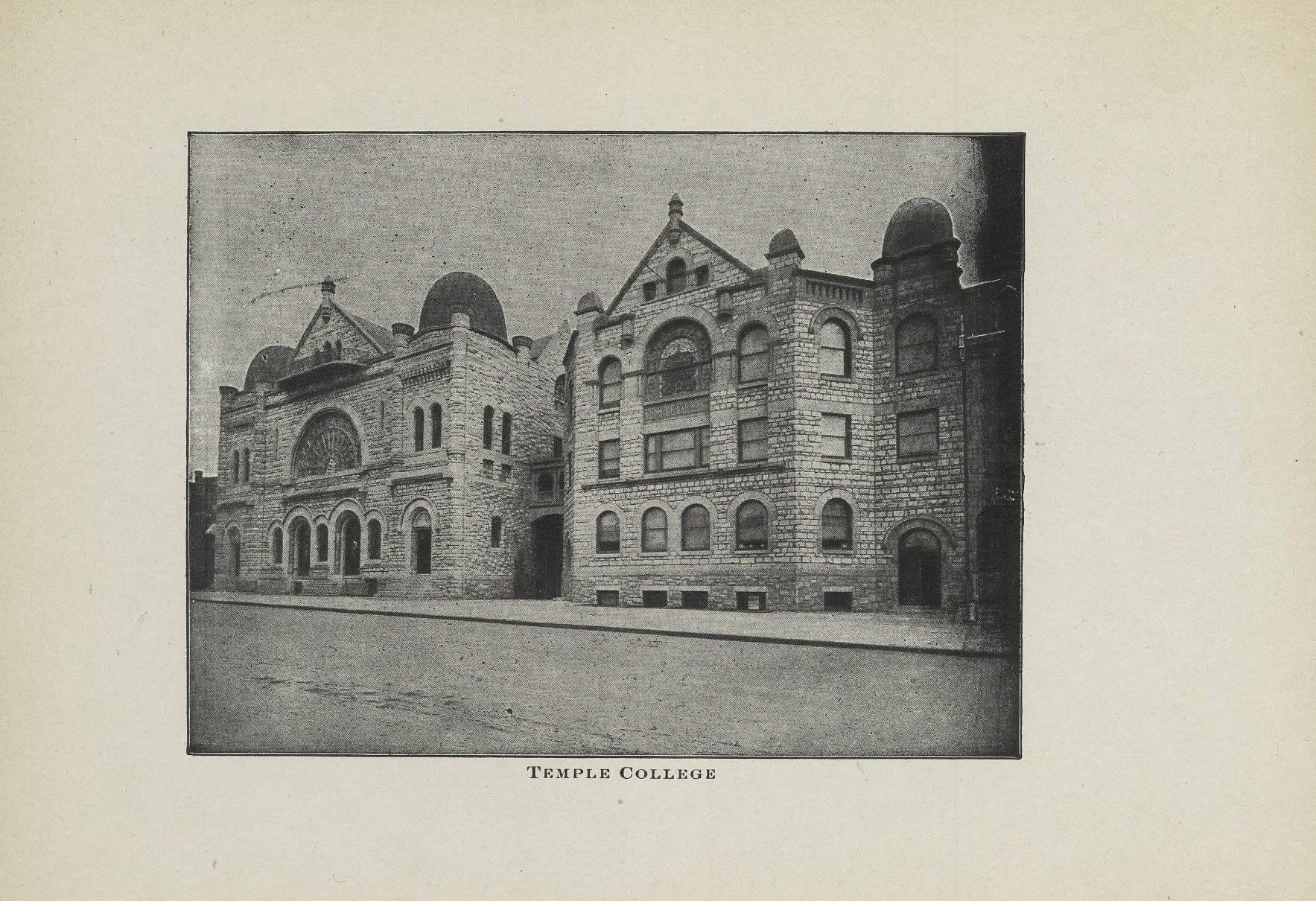
Take a look at Templar, the current yearbook, and explore the full 1900 yearbook.
